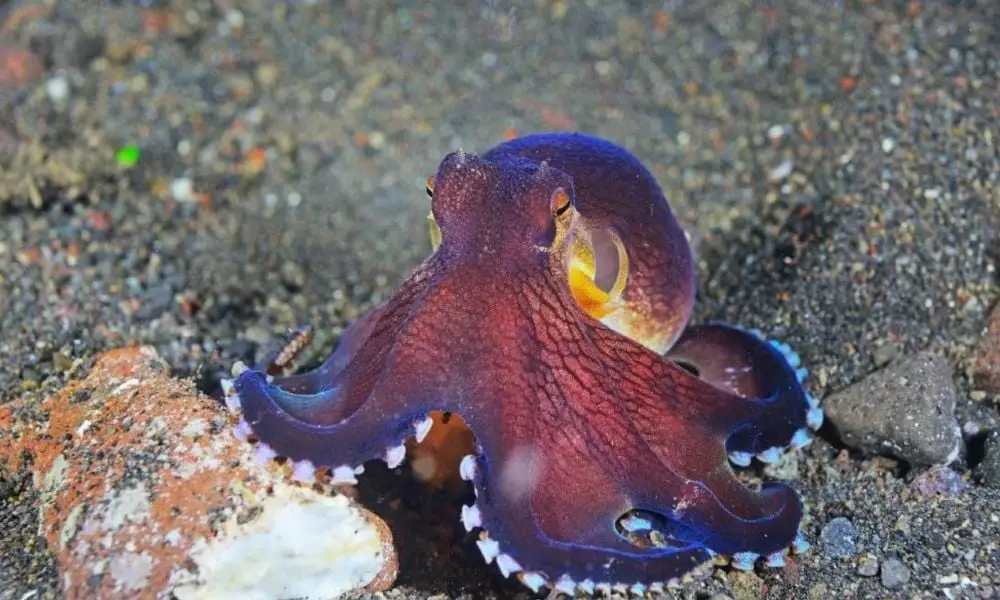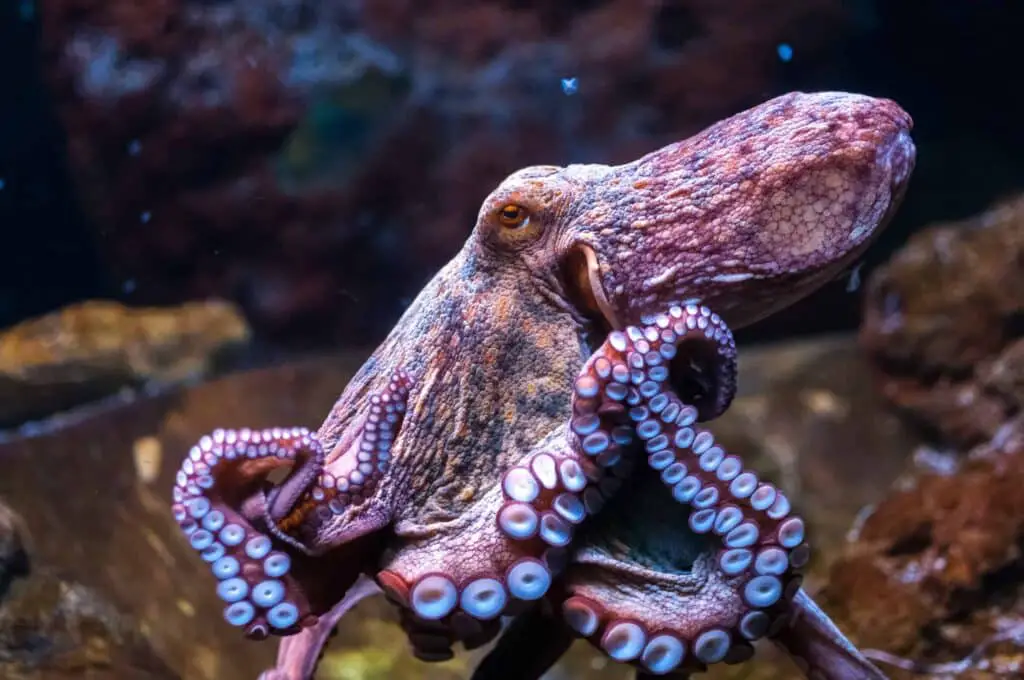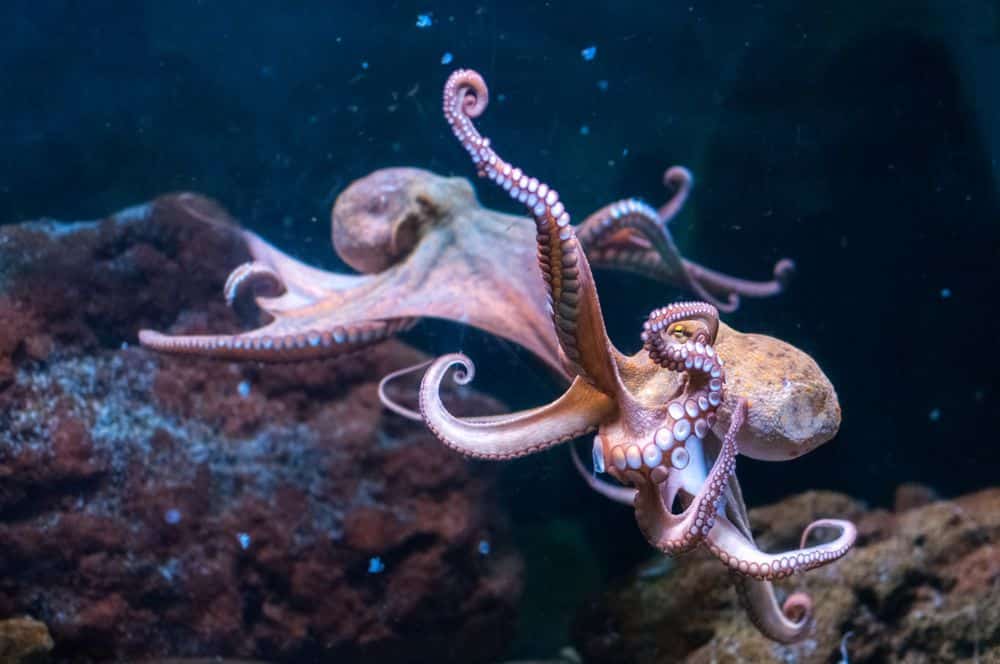What Are Multiple Octopus Called

Introduction
What Are Multiple Octopus Called: The enigmatic world beneath the ocean’s surface is teeming with creatures that often defy our understanding of life on Earth. Among these remarkable marine inhabitants are octopuses, creatures known for their intelligence, adaptability, and unique appearance.
We embark on a captivating journey into the realm of cephalopods, the class of marine animals to which octopuses belong. Cephalopods are a diverse group, encompassing octopuses, squids, cuttlefish, and nautiluses, each possessing its own set of fascinating attributes and behaviors. Octopuses, in particular, stand out for their intricate neural systems, camouflage capabilities, and remarkable problem-solving skills.
It is not widely known that octopuses live, typically solitary creatures, sometimes gather in extraordinary circumstances. Whether it’s for mating, hunting, or other cryptic reasons, these gatherings offer a rare glimpse into the social dynamics of these enigmatic creatures.
We will delve into the intriguing phenomenon of multiple octopuses coming together and unveil the term used to describe such gatherings in the world of marine biology. Through this journey, we will gain a deeper appreciation for the mysterious and awe-inspiring world of cephalopods, shedding light on their secret lives in the ocean’s depths.

What’s a group of octopus?
According to Merriam-Webster, “octopuses” and “octopi” are both acceptable, with “octopodes” being the rarest of the three. Since there is no formal collective noun for a group of octopuses, you can call it exactly that. However, a consortium of octopuses is a great choice too!
A group of octopus, often referred to as either an “octopus consortium” or an “octopus aggregation,” represents a captivating deviation from the typically solitary nature of these extraordinary marine creatures. Octopuses are renowned for their remarkable intelligence, problem-solving abilities, and the ability to adapt to a wide range of oceanic environments. While they generally prefer a solitary existence, there are occasions when they come together in numbers that baffle scientists and enthusiasts alike.
These gatherings serve various purposes, such as mating, hunting, or perhaps even protection. One of the most mesmerizing aspects of an octopus group is the intricate dance of communication and interaction that occurs among its members. Despite being solitary hunters, octopuses in a consortium display a surprising level of social behavior, revealing a complex dimension of their lives that is still not fully understood.
Studying these group dynamics provides a unique glimpse into the mysterious world of cephalopods, reminding us of the inexhaustible wonders concealed beneath the ocean’s surface. The phenomenon of a group of octopus challenges our preconceived notions about these enigmatic creatures and reinforces the need for ongoing exploration and conservation efforts to safeguard the marine ecosystems that host such captivating marine life.
What do you call multiple octopus?
Both octopuses and octopi are acceptable plurals for octopus. Of the two, octopuses is the simpler and more commonly used. The proposed plural octopodes is based on the plural of the Ancient Greek word from which octopus ultimately derives.
When referring to multiple octopus, you can use the terms “octopus consortia” or “octopus aggregations.” These phrases describe instances when several octopuses come together, which is a departure from their typical solitary behavior. Octopuses are renowned for their complex intelligence, remarkable problem-solving abilities, and adaptability to various marine environments.
While they usually lead solitary lives, these gatherings serve specific purposes. One of the most well-known instances is during the mating season when male octopuses seek out female partners. These consortia are fascinating because they involve intricate courtship rituals and communication, shedding light on the social dynamics of these otherwise solitary creatures.
Octopus aggregations can also occur when there is an abundance of food in a particular area, attracting multiple individuals to feast on the available resources. In such situations, competition and cooperation among the octopuses become evident as they share the bounty or engage in subtle interactions.
Understanding these group dynamics adds depth to our knowledge of octopus behavior and showcases their adaptability. It underscores the complex, multifaceted nature of these creatures and emphasizes the importance of continued research and conservation efforts to preserve the marine environments where these captivating cephalopods reside.
Can you have 2 octopus together?
Thus, an octopus will need a tank to itself. They generally don’t get along with each other either, so there should be one per tank. Fortunately, most of the octopuses you might come across won’t get very big. In fact, many folks (including myself) have kept small species in 30- or even 20-gallon aquariums.
In general, octopuses are solitary creatures and prefer a solitary existence. Having two octopuses together in the same confined space can be risky and problematic. Octopuses are highly territorial and can be quite aggressive towards one another, especially when they encounter individuals from the same species.
In captivity, housing two octopuses together can lead to conflicts, injuries, and even fatalities. They might engage in aggressive behaviors like territorial disputes, cannibalism, or physical attacks.
However, there are exceptions. Some octopus species, like the Larger Pacific Striped Octopus, have been observed in the wild exhibiting more social behaviors and can tolerate being in close proximity to each other without aggression. Nevertheless, these situations are relatively rare, and even in such cases, close monitoring is essential to ensure the safety and well-being of the octopuses.
While it’s possible for two octopuses to coexist peacefully under specific conditions and with careful monitoring, it’s generally safer and more advisable to keep them separated to prevent conflicts and injuries. Their solitary nature is a key aspect of octopus behavior in the wild and should be respected in captivity as well.
What is a family of octopus called?
Octopuses belong to the family Octopodidae.
Octopuses, by nature, are solitary creatures, and they do not typically form family units or exhibit social behaviors seen in species like dolphins or primates. Their life cycle is quite different from mammals, as they invest their energy heavily in reproduction rather than parental care.
When it comes to octopus reproduction, the female lays numerous eggs, which she diligently guards and cares for until they hatch. During this time, the female may not eat, and she often dies shortly after the eggs hatch, as her energy reserves are depleted. The male octopus typically has little to no involvement in raising the young.
Therefore, there isn’t a specific term for a family of octopus because their reproductive and parenting strategies differ significantly from species that exhibit familial or social bonds. Octopuses are more focused on survival, reproduction, and, in some cases, solitary hunting.
In the world of marine biology, octopuses are celebrated for their intelligence, adaptability, and remarkable behavior, but their solitary nature is a defining characteristic that sets them apart from many other marine and terrestrial animals known for their social structures and family units.
How smart is an octopus?
Octopuses have demonstrated intelligence in a number of ways, says Jon. ‘In experiments they’ve solved mazes and completed tricky tasks to get food rewards. They’re also adept at getting themselves in and out of containers.
Octopuses are remarkably intelligent creatures, often regarded as some of the most intelligent invertebrates in the animal kingdom. Their intelligence is displayed in various ways that continue to astonish scientists and observers.
One of the most striking demonstrations of octopus intelligence is their problem-solving abilities. They have complex nervous systems and large brains relative to their body size. Octopuses can solve intricate puzzles, manipulate objects, and exhibit a high degree of dexterity with their tentacles. They have been observed opening jars, unscrewing lids, and navigating through mazes to access food rewards.
Octopuses are also masters of camouflage and mimicry, a skill that requires both intelligence and creativity. They can change the color and texture of their skin to blend seamlessly with their surroundings, making them nearly invisible to predators and prey alike. This level of adaptability and control over their appearance highlights their cognitive prowess.
Octopuses have demonstrated an ability to learn and remember. They can recognize individuals, learn from experience, and even exhibit play behavior. Some octopuses exhibit a form of tool use, such as using coconut shells or other objects as shelters or shields.
Octopuses’ intelligence is a testament to the incredible diversity of cognitive abilities that can evolve in different branches of the animal kingdom. Their complex behaviors and problem-solving skills continue to captivate researchers and serve as a reminder of the vast mysteries of the underwater world.
Is there a specific term for a group of octopuses?
Octopuses are predominantly solitary creatures, and unlike some animals that live in social groups with specific collective nouns like “herd” for elephants or “pod” for dolphins, there isn’t a widely recognized specific term for a group of octopuses. The solitary nature of octopuses is a defining aspect of their behavior.
While octopuses may come together temporarily for purposes like mating, hunting, or protection, these gatherings are often referred to as “octopus consortia” or “octopus aggregations” rather than having a unique collective noun. These groupings are notable because they deviate from the octopus’s typical solitary lifestyle, revealing a more complex dimension of their behavior.
Octopuses are known for their remarkable intelligence, adaptability, and diverse range of behaviors, including intricate problem-solving and sophisticated camouflage abilities. Still, their social interactions are relatively limited compared to many other animal species, making it unnecessary to coin a specific term for a group of octopuses.
In the world of marine biology, octopuses remain captivating subjects of study, and their unique characteristics, including their solitary tendencies, continue to intrigue researchers and enthusiasts alike.
Are there any exceptions to octopuses being solitary?
There are exceptions to the general rule that octopuses are solitary creatures. While most octopus species tend to be solitary, there are a few notable exceptions where social behavior has been observed.
Larger Pacific Striped Octopus (LPSO): This small and elusive octopus species, found in the tropical eastern Pacific Ocean, is known for its unique social behavior. LPSOs have been observed living in pairs or small groups, sharing dens, and even mating face-to-face, which is a rare behavior among octopuses.
Coconut Octopus: Amphioctopus marginatus, commonly known as the coconut octopus, is another species that exhibits more social behavior. They are known to collect and use coconut shells, seashells, and other objects as shelters, often carrying them around as portable homes. Multiple individuals have been seen living in close proximity to one another, sharing the same area with their chosen shelters.
They are relatively rare compared to the vast diversity of octopus species, the majority of which maintain a solitary lifestyle. These exceptions offer unique insights into the complex social behaviors that can evolve within the diverse world of cephalopods and underscore the importance of continued exploration and research in the field of marine biology.
Are there any species of octopuses that exhibit more social behavior?
While octopuses are generally known for their solitary and elusive nature, there are a few species that exhibit more social behavior compared to their reclusive relatives. One notable example is the “Coconut Octopus” (Amphioctopus marginatus), found in the tropical waters of the western Pacific Ocean. These small octopuses are often seen carrying and using discarded coconut shells as protective shelters, and they sometimes display intriguing social interactions.
Coconut octopuses have been observed living in close proximity to one another, sharing the same coconut shell homes, which is a rare behavior among octopuses. This suggests a level of tolerance and even cooperation between individuals. Researchers have also documented instances where these octopuses engage in territorial disputes over prime coconut shell real estate, further highlighting their complex social interactions.
While the extent of their social behavior may not rival that of more traditionally social animals like dolphins or primates, the coconut octopus provides a fascinating glimpse into the diverse and often unexpected behaviors that can be found in the animal kingdom. Studying these remarkable creatures sheds light on the versatility and adaptability of octopuses, showcasing the many mysteries that continue to surround these intelligent cephalopods.

Conclusion
In our quest to uncover what multiple octopus are called, we have embarked on a voyage through the fascinating realm of cephalopods, discovering the intriguing and elusive nature of these intelligent marine creatures.
As we have learned, octopuses, despite their solitary tendencies, do occasionally assemble in groups. These gatherings, known as “octopus consortia” or “octopus aggregations,” offer a unique window into the complex social dynamics of these enigmatic animals. Whether it’s for reproduction, protection, or access to abundant food sources.
Our journey has underscored the importance of continuous exploration and understanding of the diverse inhabitants of the ocean. From their remarkable camouflage abilities to their problem-solving skills, octopuses continue to captivate scientists and enthusiasts alike, reminding us of the vast mysteries that lie beneath the waves.
The ocean remains a realm of endless wonder and discovery, where even the most solitary of beings can surprise us with their capacity for social interaction and adaptation. In this pursuit of knowledge, we find a renewed sense of awe and responsibility toward the preservation of our planet’s invaluable marine ecosystems.



